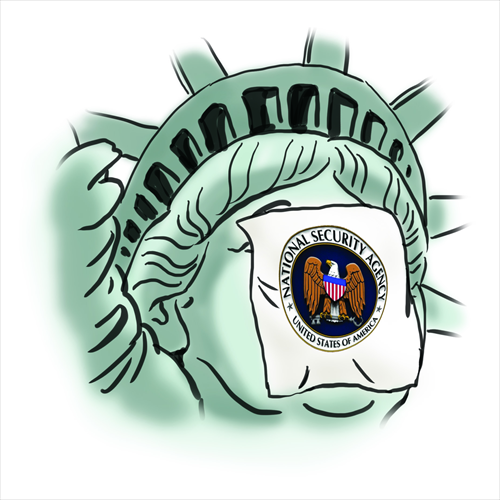Torture scraps values US once held dear

Illustration: Liu Rui/GT
American exceptionalism has always maintained a moral imperative. The conduct of the world's foremost liberal democracy is guaranteed by a fierce commitment to liberty and the security of individual rights.
In the minds of most Americans, these notions were powerfully demonstrated when Ronald Reagan endorsed and signed the UN Convention against Torture in April 1988. At the time, the president was effectively casting US moral disdain upon nations in the practice of jailing and abusing political prisoners, thus reaffirming the status of the US as a source of good in the world. If only lesser nations could aspire to the civility and fairness of the American way, the world would surely become a better place.
The Convention was a strong document and was clear in its definition of torture, which included the infliction of severe pain, threats of imminent death, and the use of mind-altering drugs, and in the absolute and binding nature of its application. "No exceptional circumstances whatsoever, whether a state of war or a threat of war, internal political instability or any other public emergency, may be invoked as a justification of torture," it reads.
By 2006 though, many Americans had decided that the US could exempt itself from the conditions that were to be strictly observed in Cuba, Iran, Russia and other nations not counted among the US' past political friends. The "War on Terror" was in full effect, and a new Republican administration was willing and able to use any and all means to achieve victory on military battlefields abroad and in the political theater at home.
Indeed, the passage of the Military Commissions Act of 2006 effectively made CIA torturers immune to prosecution for their barbarous conduct, while at the same time it stripped away the rights of newly-termed "enemy combatants."
Denied the right to face their accusers in a court of law, prisoners at CIA prisons were held for months or years without being charged with crimes, and they were tortured in hopes of satisfying the political and military agenda of a presidency desperate to save face in the wake of the only attack on the US mainland in many generations. At least one prisoner lost his life while chained to the concrete floor of a cold room he was not permitted to leave. American exceptionalism now meant expedient self-exemption from the exercise of the very principles upon which it had been founded.
Of course, as the recently released US Senate Torture Report makes clear, the CIA knew its methods were not only dangerous, but also likely to be ineffective. Yet the agency employed them anyway, spending $81 million of taxpayer money to hire a private, outside firm of inexperienced psychologists to sell them what they already knew to be a flawed package of abusive, discredited methods of interrogation.
Indeed, if the conduct of the CIA weren't so cruel, and so grave, the revelation of its dark incompetence could be treated as farce. If long waits at airports and restricted access to government buildings in the wake of the 9/11 attacks were attempts at easing the fears of a wounded nation that often seemed to approach dark comedy in the ridiculousness of their enactment, the detention, abuse and degradation of "enemy combatants" at the hands of CIA officials fully aware of the futility of their evil conduct was nothing less than an absurdist experiment within then-president George W. Bush and vice president Dick Cheney's reprehensible playbill of "Security Theater."
Yet what remains in the absence of dramatic perspective is the complete abdication of principle performed by a nation that sees itself above all others in protecting the rights of the individual. Incredibly, the US government regarded certain of its prisoners to be without protection from the practices of torture so proudly disparaged by Ronald Reagan a mere generation ago, yet so vividly exposed by the recent release of the Torture Report.
Clearly, the very act of torturing prisoners to whom no specific legal protections apply is tantamount to the denial of fundamental human rights in general.
Perhaps the release of the Senate Torture Report is a step toward the admission and rectification of the wrongs done by CIA agents participating in the "War on Terror." Yet the crimes detailed within are unlikely to be prosecuted, as individual identities and responsibilities are kept in the dark. The world has been illuminated by what now seems a hypocritical light cast from a nation that regards itself as "a shining city on a hill."
The author is a freelance writer and political observer living in Columbus, Ohio. opinion@globaltimes.com.cn